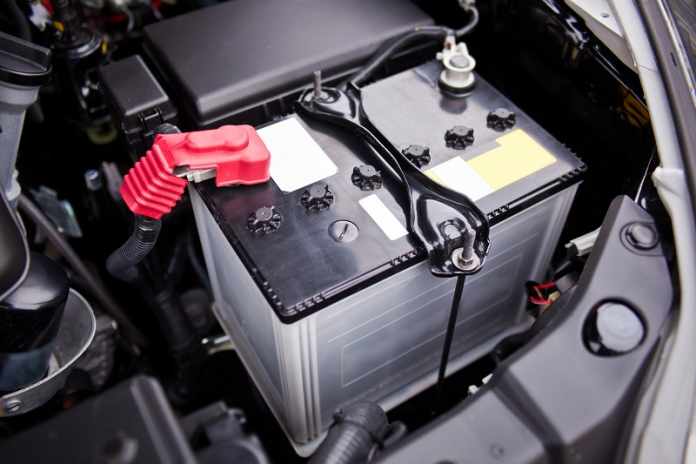
How long do batteries last in a car? What affects the lifespan of your car battery? And how can you tell if your battery’s about to die?
We have the answers. Below is the ultimate guide on when to replace your car’s battery.
This guide explains how car batteries work, why they eventually die, and what factors cause them to die sooner. We’ll also tell you the average lifespan of a car battery and 6 signs that yours needs to be replaced.
Learn all you ever wanted to know about car battery lifespan from this guide.
How Long Do Batteries Last in a Car?
To put an average range on it, a new car battery typically lasts about 3-5 years. But, in all honesty, there’s no true answer to this question.
The real answer is that it lasts until it dies, that is, until it can no longer hold a charge. You only need the battery to start your car or to use your car’s electronic features without starting it. While you drive, the battery recharges and the electrical components are powered by the internal combustion engine.
But, like all rechargeable batteries, it can only recharge a certain number of times. Eventually, it no longer holds a charge and is completely dead with no chance of revival.
Certain Factors Affect Battery Life
Certain conditions will shorten the overall lifespan of your battery. For example, if you have a high-quality battery and you treat it well, it could last you 5 years.
But if you bought it yesterday and then left your headlights on overnight, it may already be ruined. Though, in this instance, since the battery is still new, you can probably revive it by jumpstarting it and driving around to recharge it. That said, such trauma will still greatly decrease the overall lifespan of your battery.
Now, there are some signs that can warn you that your battery needs replacing. However, this doesn’t always happen. Sometimes, your battery dies with no warning at all.
Regardless, if you do notice any of the following signs, you should definitely shop for a new battery.
1. The Car Has Trouble Starting
As mentioned, your battery is what starts your car. When your battery is starting to die, it becomes weaker.
Then, you’ll notice it takes increasingly longer to start your car every time you try. Also, the humming noise that happens when you turn the ignition will even sound weaker. Pretty soon, your car won’t start at all.
If you notice any of these things, get a new battery now. Or, at least test the battery. You can learn how to load test a car battery here.
2. The Battery Dies Often
This is what happens when you don’t replace your battery when your car has trouble starting. Once in a while, your car doesn’t start at all and you need a jumpstart. You might not be able to turn on the lights or radio either.
You shouldn’t have to jumpstart often. If you do, it means your battery isn’t holding a charge for very long. Get it replaced as soon as you can or you won’t even be able to jumpstart it anymore.
3. Discharge (Completely Draining the Battery)
Of course, a dead battery (your car not starting) can also happen if you leave lights or the other electronic components in your car on when you leave your vehicle. The most common causes of this are leaving the headlights on, leaving one of the interior lights on (or the door open), or leaving your keys in the “On” position.
Now, it may be possible to jumpstart the battery when this happens. But even if this battery drain is a one-time event caused by human error, the damage has already been done.
That is, your overall battery life is now less than it would have been. Now, it won’t be long before the battery stops holding a charge altogether.
If your battery was new, we’re sorry. But you’ll still probably need to replace it. You can test it though, to be sure.
4. Corrosion on the Terminals
Another common sign of a dying battery is corrosion buildup on the connection terminals. The terminals look like little metal knobs that connect to the power cables in your car.
They should not be covered with white/green, powdery-looking gunk. This is corrosion and is a sign that your battery is on its way out.
It’s important to note: when you do replace the battery, you first need to clean the corrosion off the cables to prevent connection issues.
5. Check Battery Light
In many vehicles, the check battery light comes on every time you start the car, even if the battery is new. But what you want to look for is any change in your dashboard notifications.
For example, maybe the check battery light doesn’t normally show in your car but has recently started to. Or, the check battery/check engine lights are now displayed all the time. When things like this happen, get your battery tested or replaced.
6. The Battery Is Old
Lastly, if your battery is more than 3 years old, don’t wait for it to die on you. You may not get any of the warnings above before this day comes. One day, it could just stop working.
Replace it now before this happens to you.
Please Share This Valuable Knowledge
We hope you found this guide helpful and that it answered all your questions about when to replace your car battery. But, surely, you’re not the only one with these questions.
Is there anyone else you know who’s wondering, “How long do batteries last in a car?” If so, please share this valuable knowledge with them as well.
What would you like to learn about next? Check out our automotive blog for tips on riding a motorcycle, selling a car, choosing the perfect family vehicle, and more.